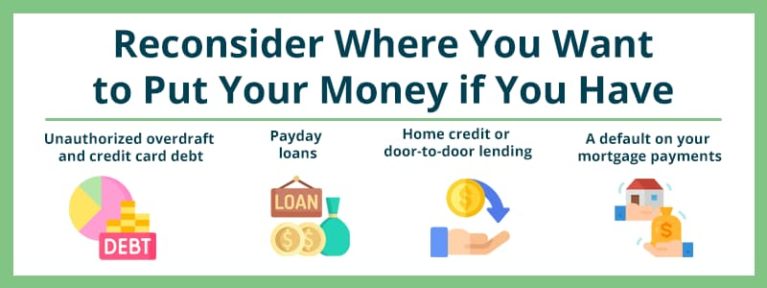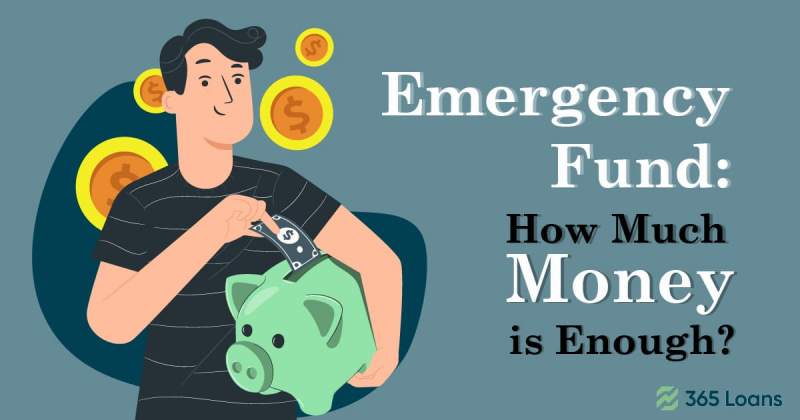How much cash you should keep as an emergency reserve fund in your bank account is a topic on which everyone has an opinion. However, in actuality, it is dependent entirely upon your financial status. Therefore, the amount of money you should have in your savings account is a personal decision that one cannot make in a generalized manner.
The typical advice is to have enough to cover three to six months’ worth of essential costs. To get an exact number, consider an amount that will fund your everyday expenses, your discretionary spending, and the sum of your savings that will serve if a contingency occurs.
Then again, while starting your emergency fund as soon as you can is a good idea, it is a greater one to stick to what you can afford and make an effort to save frequently. Budgeting is the first step in anything. You might not have anything to keep in your bank account if you don’t budget properly.
Here are some possible thoughts on how to go about it.
How to build your emergency fund
Saving modest amounts regularly is frequently more efficient than saving considerable sums rarely or not even at all. Moreover, such an approach helps you develop a savings habit and avoid excessive financial commitments. It also enables you to more effectively plan your expenditures from week to week or from month to month.

Finding minor methods to cut unnecessary spending is one of the simplest ways to reach your emergency fund target. You can reduce spending by making tiny changes rather than giving up everything you enjoy. For instance, you could pack a lunch a couple of days a week if you typically go out every day for lunch. Also, consider free, neighborhood-sponsored activities as an alternative for weekend entertainment. You might also start a new side business or work a part-time job for additional revenue.
How much should you have in savings
A good general rule of thumb is to have at least three months’ worth of necessary expenses ready in an instant access savings account.
Suppose you spend $1,000 on a mortgage or rent, food, heating costs, and other monthly necessities, then aim for $3,000 in emergency savings. Prepare yourself for the best-case scenario where you might end up jobless or split up with your partner and need breathing room to get on your feet. In a similarly sticky situation, you will need a little more than the price of a new boiler or washing machine.
Suze Orman, a personal finance expert, suggests having an emergency fund that can last for eight months because that is typically how long it takes for someone to obtain employment. Others might go completely the other way and advise taking no precautionary action if you have no debt, possess a sizable amount of money saved in liquid investments, and have good insurance. Another option is to cover unforeseen costs through insurance.
It all boils down to an average number that will help you when needed. Regardless of your particular magic number, you should probably start an emergency fund if you do not already have one. First, build the fund up to three months’ worth of costs; then divide your money between investments and savings accounts until you have six to eight months’ worth saved.
When should you NOT start an emergency fund
Starting to save on an emergency fund is excellent, but ensure you are prepared before investing all your extra cash there. For example, if you hold any priority debts, paying them off first would result in long-term savings more than putting them aside.

However, if you make your mortgage payments on time and any other credit you have is low cost, short-term, or well under control, it is a bright idea to increase your emergency fund.
Looking ahead
There is, of course, more to life than just setting aside money for emergencies or planning your retirement with every spare cent. You will also want to save so you may benefit from the positive things life offers you, such as getting married, purchasing a home, or simply taking a family trip.
You might consider generating even larger yields if you are fortunate enough to have extra cash and a sizable emergency fund in checking and savings already.
Ultimately, whatever your goal is and wherever you are financial-wise, you should have some money set aside, especially if you do not want to rack up a massive debt on your credit cards totaling thousands of dollars. You can create your ideal savings balance if you make regular deposits.







